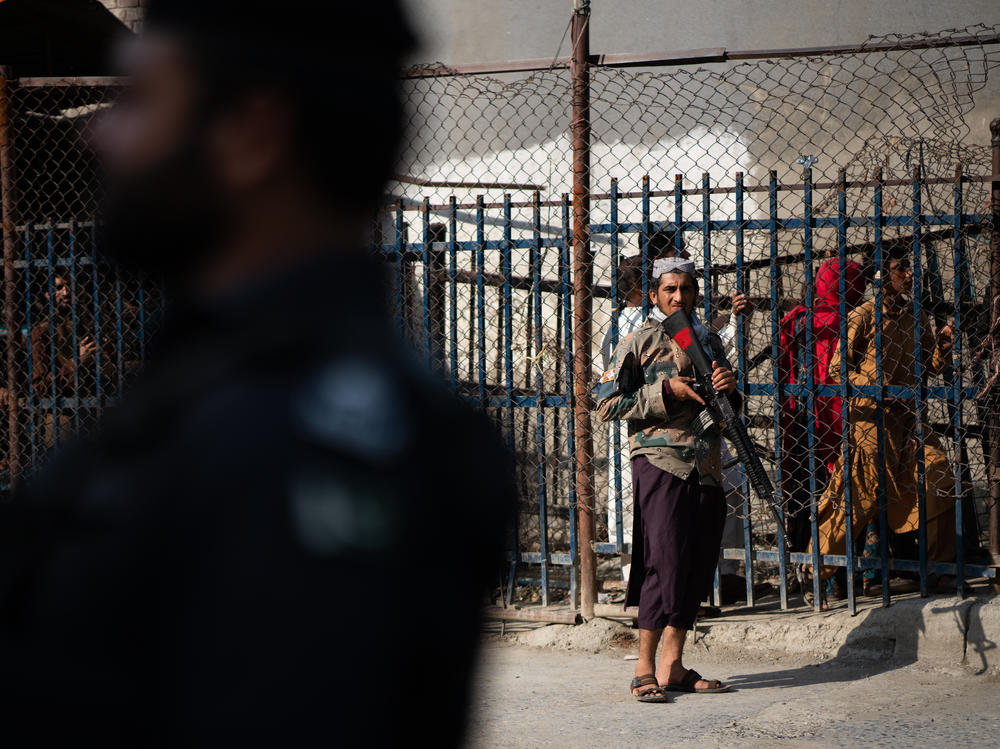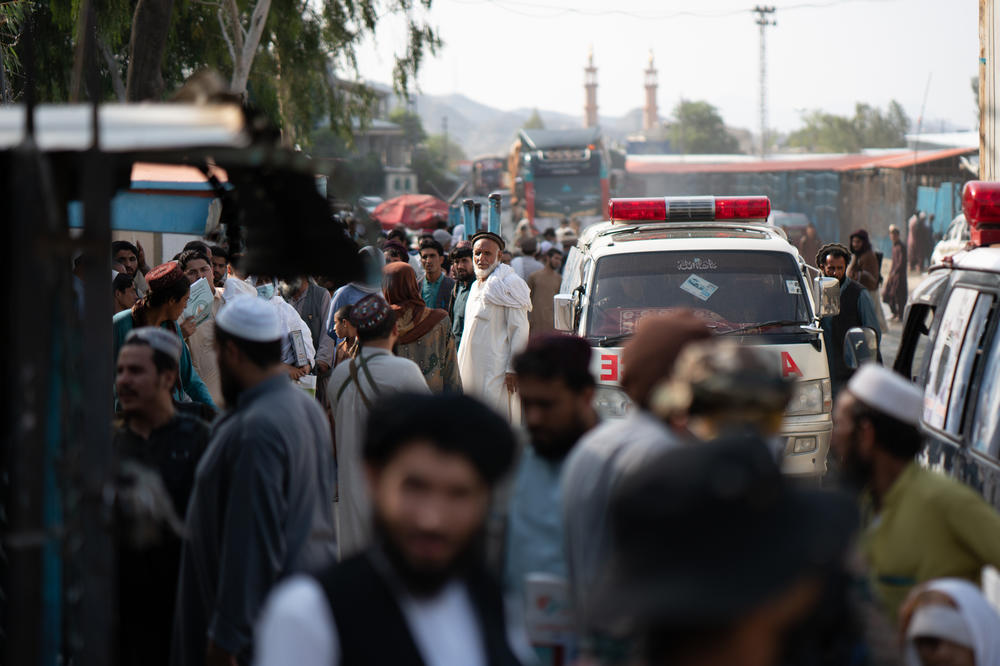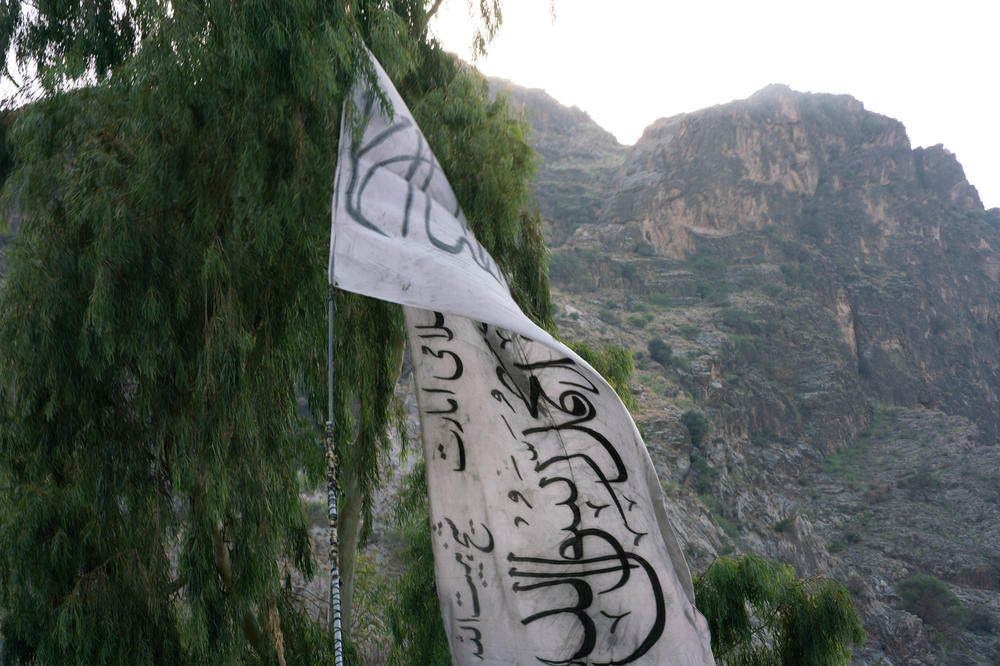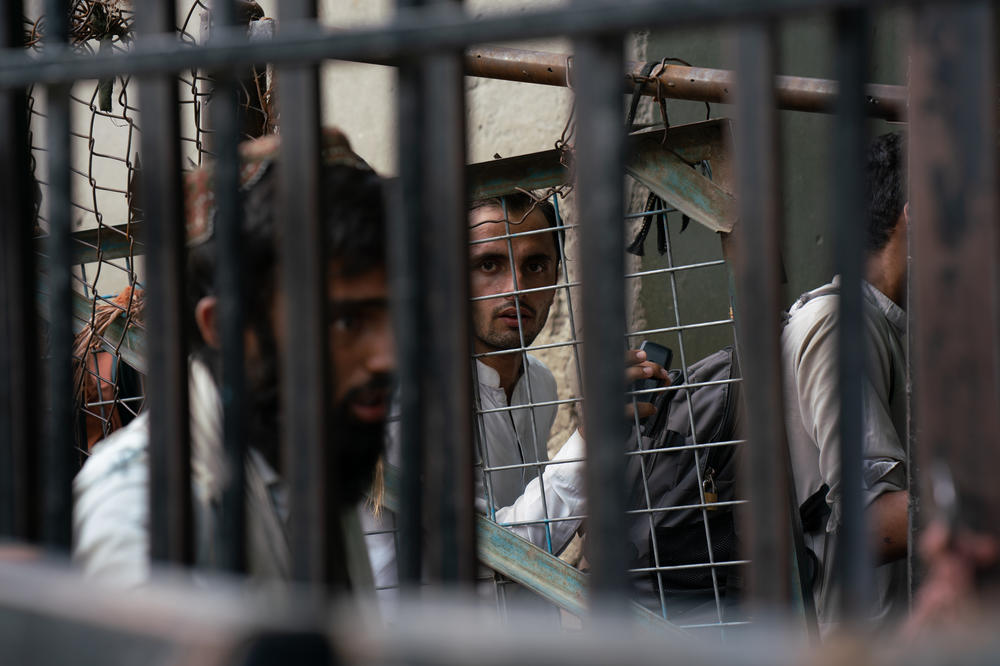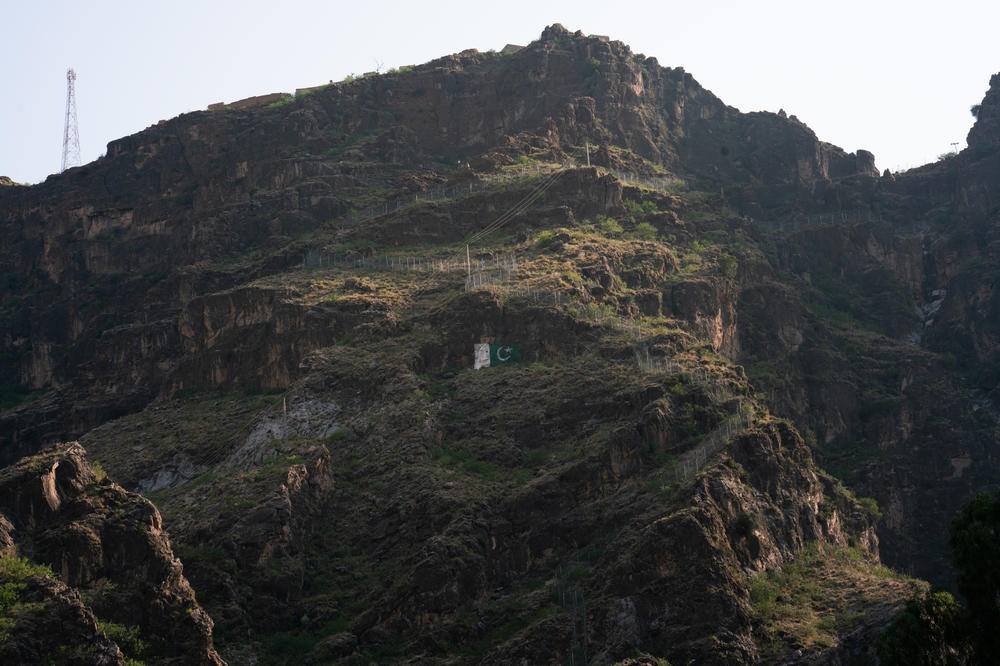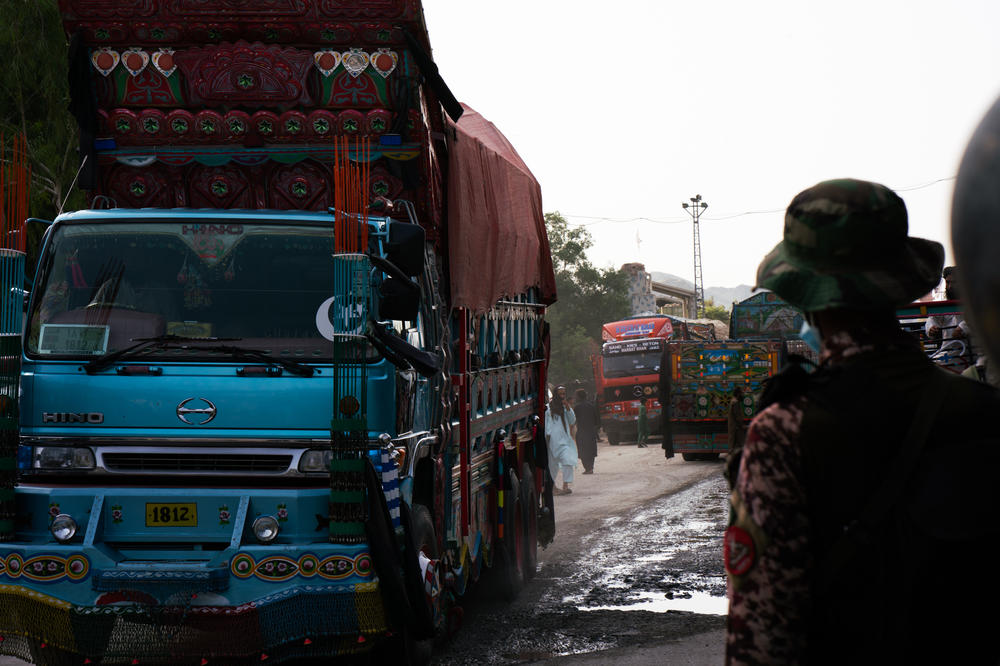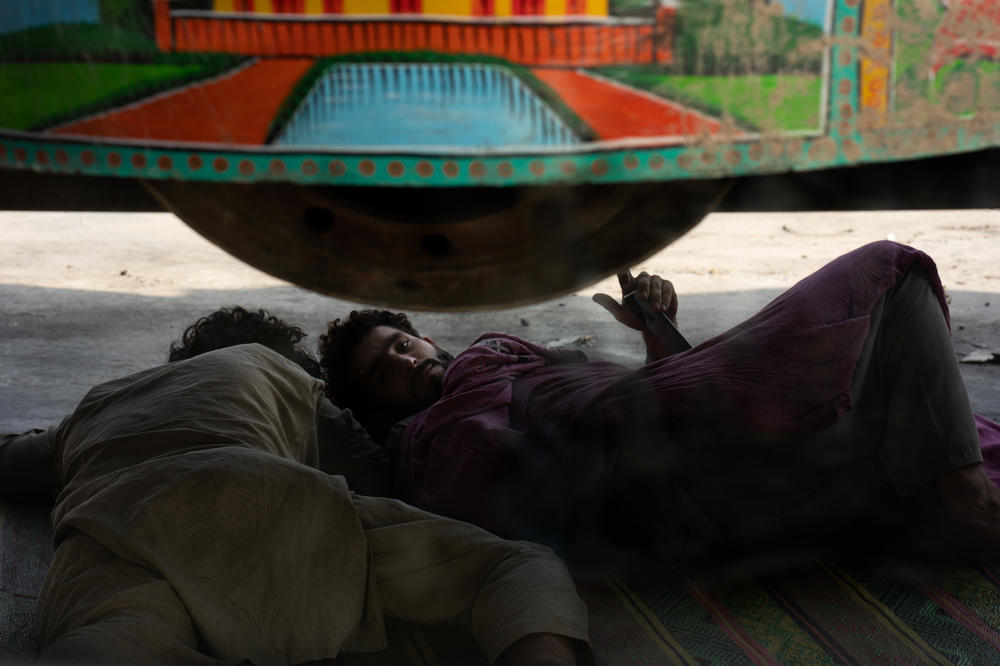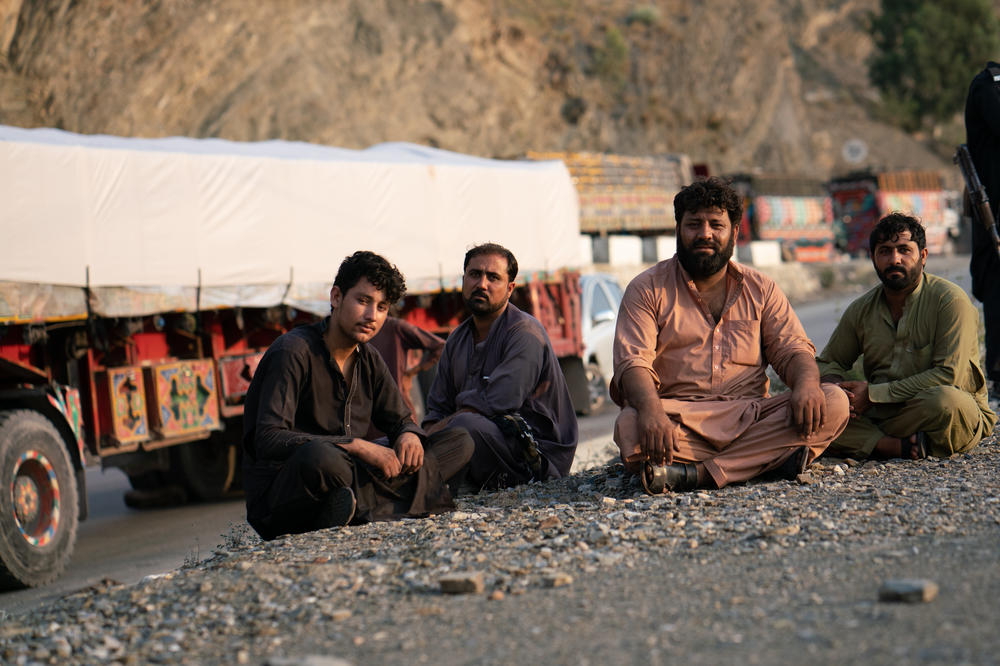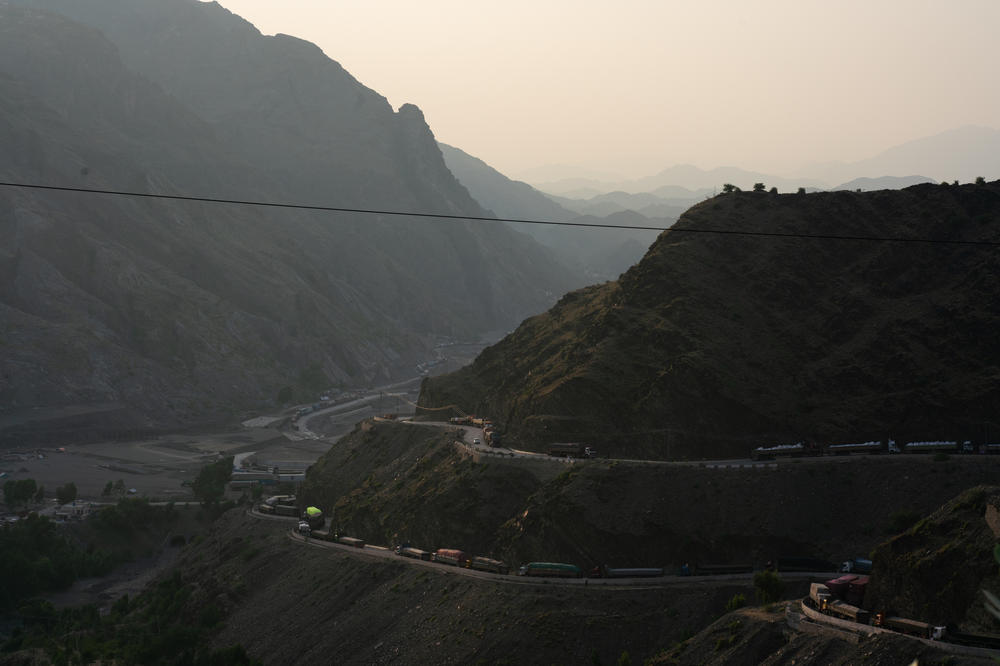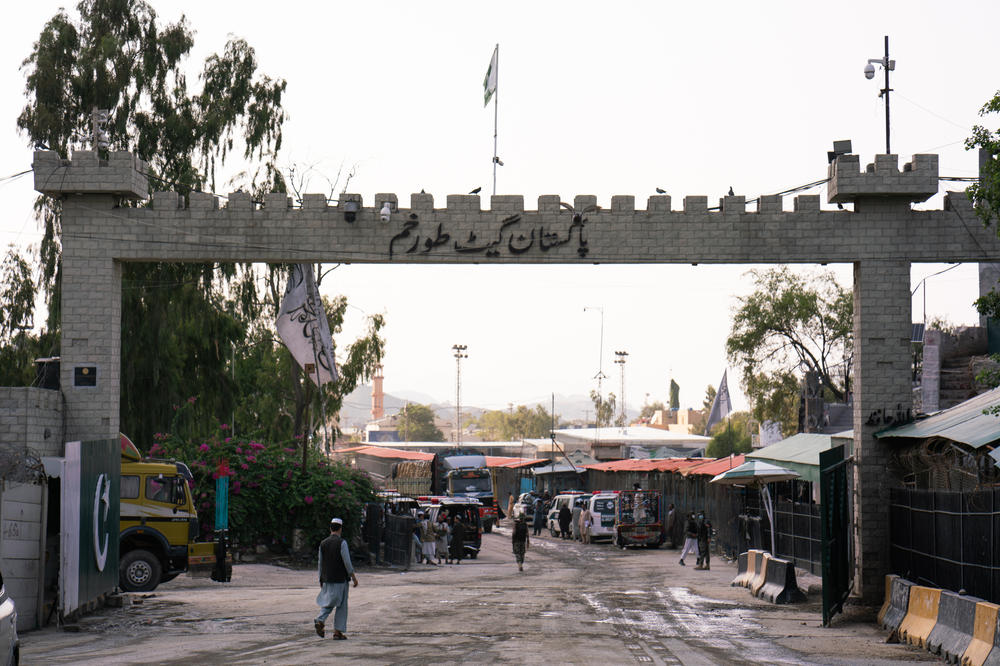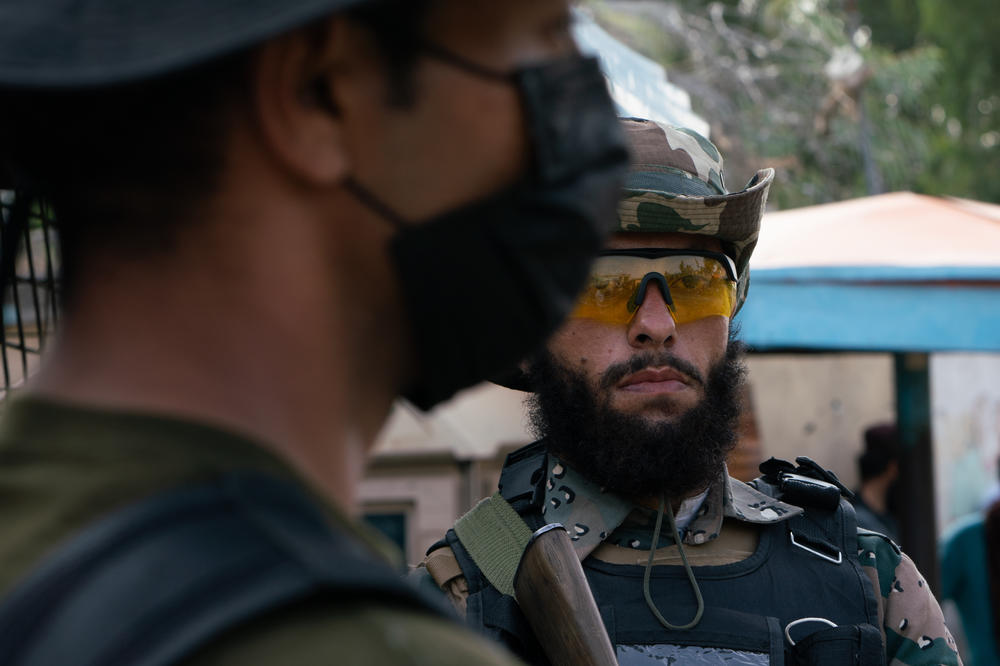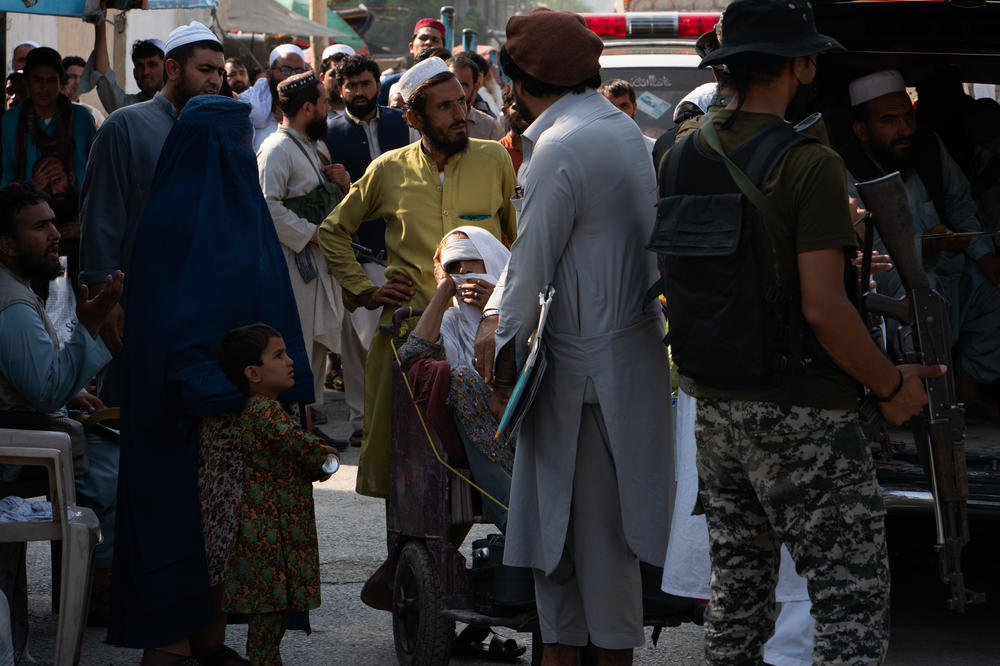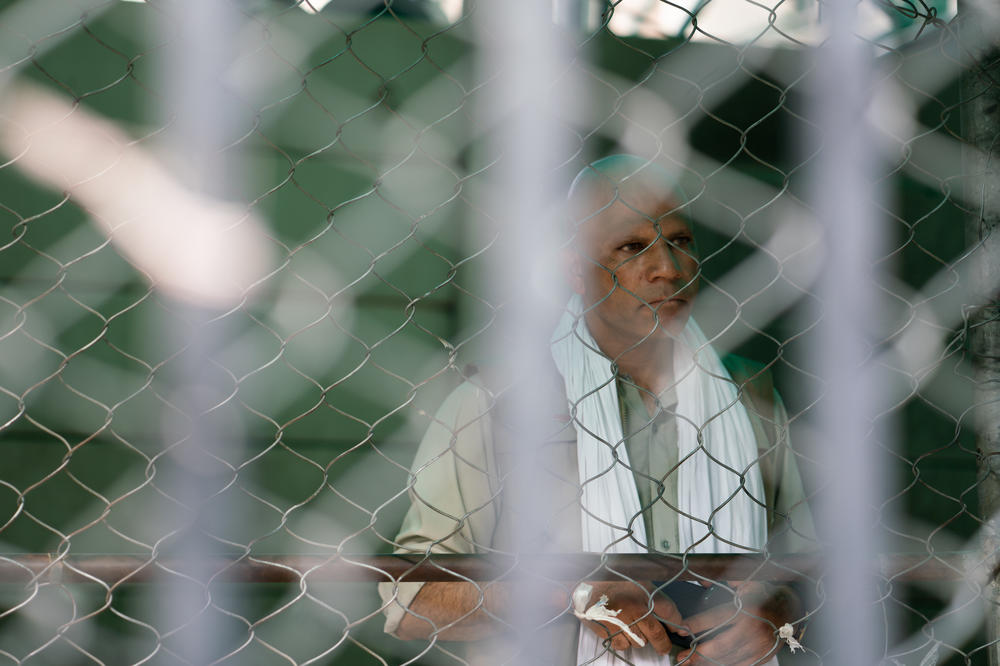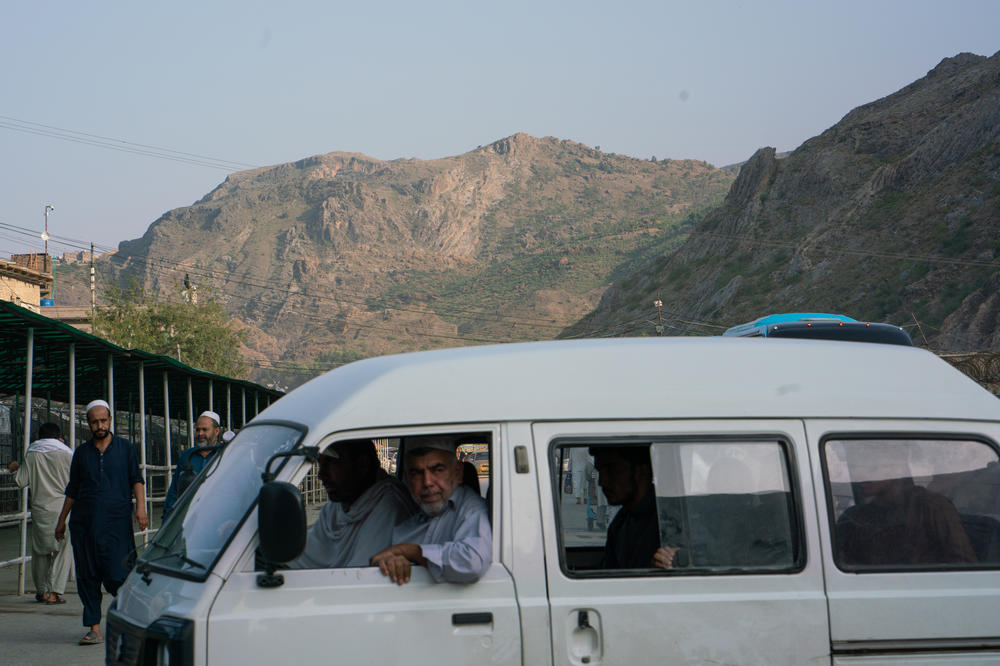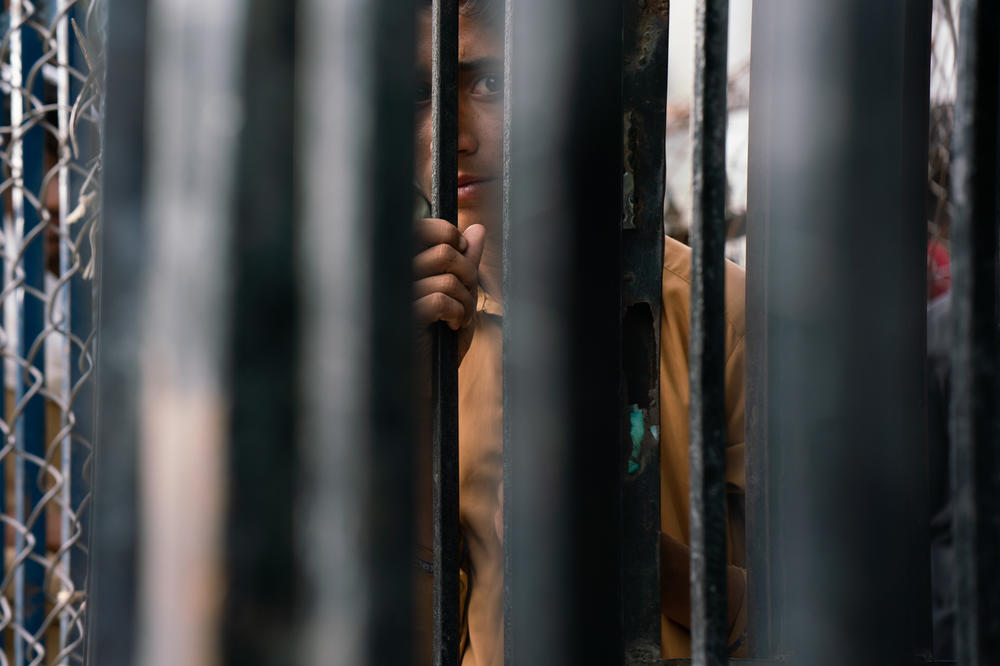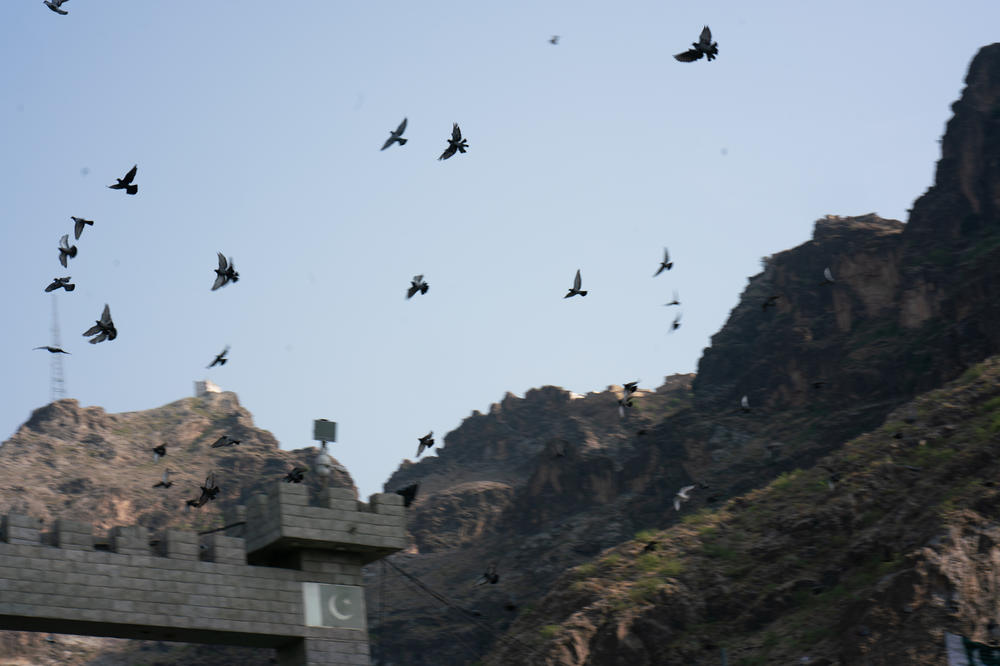Section Branding
Header Content
At Pakistan's Border With Afghanistan, People Wait To Cross From Both Sides
Primary Content
TORKHAM, Pakistan — Although the Kabul airport has opened again to international flights, many Afghans are still trying to flee overland, through major border crossings like the one in Torkham, Pakistan.
Nestled into the mountainous valley of the Khyber Pass, used by traders and invaders from Alexander the Great to the British Empire, Torkham became a route that U.S.-backed mujahedeen took into Afghanistan in the 1980s. It is part of a region "caught between various empires," says Sarfraz Khan, a University of Peshawar international relations professor.
In recent years, Pakistan has tightened security. A 1,600-mile fence built in 2017 by the Pakistani military now climbs the dry, craggy mountain slopes and makes it harder to slip into Pakistan from Afghanistan.
Uncertainty after the Taliban seized power has helped create a backlog of deliveries, and brightly painted cargo trucks carrying everything from onions to construction materials can wait days to cross the border. While stuck, some truckers roll out carpets for an afternoon nap under the shade of their vehicles or gather with other drivers for tea.
Razziq Mehmon, 40, is an Afghan who is driving a truck loaded with cement bound for Jalalabad, the first major Afghan city across the border. His country has been at war his entire life. After the Soviets attacked his home village, his family fled and never returned. They're still in Afghanistan, internally displaced, their lives on hold. They, too, are waiting.
The road that leads out of Pakistan and into Afghanistan appears open. Not even a painted line separates the two countries. But the Torkham border crossing is patrolled by armed Pakistani military and Taliban guards and is flanked by Taliban flags. One Taliban guard wears a crisp green uniform with the blue patch of the former Afghan National Police, the old U.S.-backed force.
Border authorities, police officers and others at this crossing say a few hundred people make it through to the Pakistani side each day.
Pakistan says it cannot take more Afghan refugees, but it does let in Afghans who are seeking medical care or who have documents to travel onward. More than 1.4 million Afghan refugees are registered in Pakistan, according to UNHCR, the United Nations' refugee agency, and there are more who are undocumented.
Rahmatullah Alakkozai, a doctor who traveled to Torkham from the northern Afghan city of Mazar-e-Sharif, tells NPR that he was allowed through to Pakistan because he can move to Germany, where he has relatives. He says he fears for the future of Afghanistan, even though "things seem fine" at the moment.
The Taliban "have shown us what they are capable of in the past, with how they flogged women or didn't allow them to go to school," he says. "If they continue the way they are going, then things will be good, but if there are changes to their politics and their approach, things will fall apart again."
There are others at this crossing who cross in the opposite direction. Sayyid al-Rahman, a Pakistani student, is returning to the Afghan medical school he has been attending. He believes Afghanistan is safer now that the Americans are gone. Now, he says, there is "no signal of dropping bombs from the helicopters and planes."
Some try to sneak over the border crossing. A group of Afghan kids, nabbed by Pakistani inspectors, sits by the Pakistani checkpoint holding burlap sacks full of cartons of cigarettes. They are child smugglers who slip into the giant cargo trucks, hiding in the toolbox, the spare tire well. Those who make it across to Pakistan undetected sell their goods in the Torkham border town.
On this day, the stowaways are discovered. Once enough of them are rounded up, a border official whistles them over. The children grab their sacks and hurry back across to Afghanistan.
Copyright 2021 NPR. To see more, visit https://www.npr.org.
